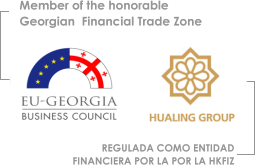NEWS

How to ensure that foreign direct investment does not harm Europe's interest
MEPs on February 14 adopted a proposal to establish a legal framework to assess foreign direct investment in the EU.
The new legal framework for control over foreign direct investment in the EU allows for better cooperation between the European Commission and European governments to ensure security and public order. These measures keep the door open to foreign capital, but include a mechanism for control over investments when it is suspected that they may affect projects or programs of interest to the EU, such as in the fields of research.
"This mechanism is a sign that Europeans are aware that the world not only has investors full of good intentions," said French MEP Franck Proust, of the European People's Party, during Parliament's plenary session. "Now we can say that we are going towards a Europe that supports and defends its interests," he added.
Pros and cons of foreign investment
Direct international investment is a source of growth for the EU economy and was especially important for countries affected by the last financial crisis. At the end of 2017, the EU received 6,300 million euros through this type of investment, cn Switzerland (800 million) and the United States (2,200 million) as the main investors.
However, recent acquisitions of transport and energy infrastructures, such as ports and high-tech companies, by foreign state-owned companies worry EU governments about technology transfer and leaving critical infrastructure in the hands of emerging powers such as China and Russia
Control of foreign direct investments
Half of the European countries, including Spain, have established mechanisms to assess the possible risks of foreign direct investment. Business partners such as the United States, Russia, Japan, China and Australia also conduct similar assessments.
The systems vary from one Member State to another and so far have not been coordinated with each other, even in cases where investment may affect several countries. The new European rules do not seek to harmonize national control mechanisms, but rather to increase cooperation and information exchange between the Member States and the European Commission.
The EU and globalization
These new rules are part of the EU's trade policy to deal with globalization. It also does so through commercial agreements (36 agreements executed to date) and instruments to tackle commercial disputes. In May 2018, MEPs approved rules to strengthen the anti-dumping policy.
Find out more about Parliament's position in world trade with our infographic.



